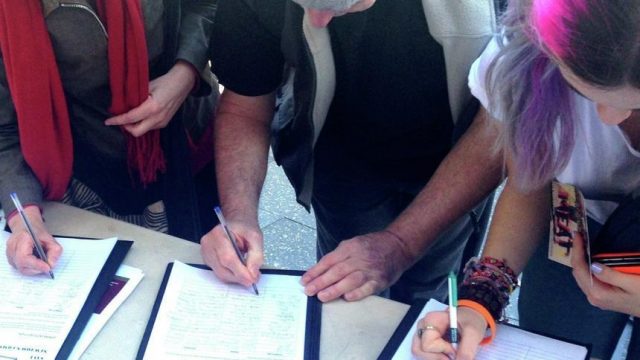Port: Electronic signatures for ballot measure campaigns might not be the worst idea

MINOT, N.D. — The founders of the American system of government were as much concerned with protecting our republic from the tyranny of fickle mobs as they were the excesses of monarchy and despotism.
“In all very numerous assemblies, of whatever characters composed, passion never fails to wrest the scepter from reason,” James Madison, who had great disdain for direct democracy, wrote in the Federalist Papers . “Had every Athenian citizen been a Socrates, every Athenian assembly would still have been a mob.”
Thus informed by the architect of the U.S. Constitution, I would, were it up to me, wad up the portions of North Dakota’s state constitution which allow for laws to be enacted by way of petitions and throw them in the nearest Dumpster where they belong.
But because we have strayed so far from the principles underpinning our nation’s founding, mine is a minority viewpoint. Many deluded souls have convinced themselves that allowing a distracted, largely apathetic electorate to vote on intricate policy proposals put on the ballot through a signature-gathering process that is easily manipulated by deep-pocketed interests and wide open to fraud is some pure distillation of the democratic ideal.
This is foolishness.
But if we’re to tolerate foolishness, perhaps a proposal before the Legislature in Bismarck to reform the initiated measure process has some merit.
House Concurrent Resolution 3031 , introduced by Rep. Steve Vetter, a Republican from Grand Forks, would amend the state constitution to allow for electronically submitted signatures. Petitioners would still be allowed to collect signatures the old way, despite its frequent problems with fraud and abuse, but however the signatures are gathered, their number must meet higher thresholds.




